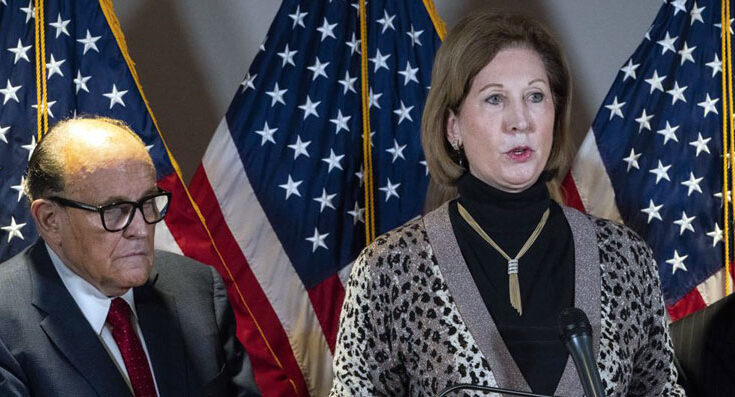Jacquelyn Martin/AP File Photo
Column By John Young
Whatever fraud he’s up to now, once upon a time Rudy Giuliani fought crime.
A zealous federal prosecutor in the 1980s, one of his key tools was the Racketeer Influenced and Corrupt Organizations Act – RICO.
The 1970 law gave law enforcement a means of cracking vast criminal organizations and targeting the kingpins.
RICO was used to put mobster John Gotti out of business, for instance.
But it isn’t just for Mafiosi. It’s for any grand law-breaking conspiracy. Ask Fulton County, Ga., district attorney Fani Willis, clearly zeroing in on indictments for Team Trump.
Willis has a penchant for RICO. In addition to going after Atlanta gangs, she used the racketeering law to indict 35 Atlanta teachers accused of falsifying standardized test results.
Gulp. Conspiring to overthrow our government sounds a bit more serious than fake test scores.
Jack Smith, Attorney General Merrick Garland’s special counsel on Jan. 6 and sundry matters, used RICO when he went after corrupt cops as head of the Justice Department’s Office of Public Integrity.
Jim Walden, former assistant U.S. attorney for the Eastern District of New York, has drawn out a compelling case for RICO charges against Trump.
It includes not only matters related to the terrorism of Jan. 6 but also the stolen documents case facing Trump.
Counted down like the petals of a daisy, he lays out the components of a RICO rap, each carrying its own federal felony:
Insurrection (obstruction of Congress). Witness tampering. Fake Electors. Money laundering. Illegal access to voting machines (by fake electors and campaign personnel). Murder conspiracy (“Hang Mike Pence”).
One key component of Walden’s RICO framework, and presumably Smith’s, is fundraising fraud, the bilking of donors for as much as $250 million under the “Stop the Steal” banner.
Smith’s investigation wants to know where the money went.
The only expenditures to fit Trump’s fund-raising appeals for all that money — to “fight the steal”– were two studies costing $735,000 and $600,000 commissioned to find election fraud. Both concluded the election wasn’t stolen.
That would leave, let’s see, just south of $248 million to refund.
The New York Times reports that two weeks after the 2020 election, Trump campaign staffers drew up an internal report debunking claims of a stolen election, including claims that Dominion Voting Systems was flipping Trump votes to Joe Biden.
Nonetheless, the campaign dispatched Giuliani and Sidney Powell to make their case against Dominion on Trump’s propaganda vessel, Fox News.
In its final report, the Jan. 6 Committee wrote, “Not only did President Trump lie to his supporters about his election, but he also ripped them off.”
And so: Since March, Jack Smith has subpoenaed Trump advisers and former campaign aides in a “follow the money” quest.
If confined to this matter alone, the result could be the kind of charges for which Trump advisor Steve Bannon was convicted: wire fraud (for fraudulently raising money on the pretense of building a border wall).
By the way, though Trump pardoned him, Bannon still could face similar charges from the Manhattan district attorney.
It seems increasingly likely a storm of farm fowl is coming home to roost on Trump’s doorstep.
Speaking of Mar-a-Lago and the irony that would be attached if Giuliani faced RICO charges:
As president, after asserting Hillary Clinton’s handling of classified material was “lock her up” criminality, Trump signed a law upgrading the penalty for wrongly moving classified material, turning it from a misdemeanor to a felony, which would carry a maximum five-year sentence.
That would be a serious matter if the law, any law, applied to the archduke of Mar-a-Lago.
Longtime newspaperman John Young lives in Colorado. Email him at jyoungcolumn@gmail.com.
The opinions expressed in this editorial are those of the author.











